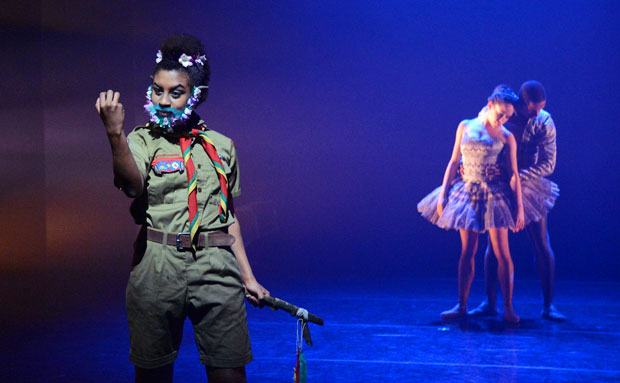
© Dave Morgan. (Click image for larger version)
Ballet Black
A Dream Within a Midsummer Night’s Dream, Limbo, Two of a Kind
London, Linbury Studio Theatre
26 February 2014
Gallery of pictures by Dave Morgan
balletblack.co.uk
www.roh.org.uk
Now in its thirteenth year, Ballet Black’s specialness is not the colour of its performers’ skin but the quality and quantity of the works its director, Cassa Pancho, commissions: over 30 new ballets to date. Where else could ballet dancers experience such a cornucopia of creativity? This season’s triple bill features two returning choreographers, Martin Lawrance and Christopher Marney, and a premiere from Arthur Pita – his first for a ballet company.

© Dave Morgan. (Click image for larger version)
Although Pita calls A Dream within a Midsummer Night’s Dream a dance theatre piece, it involves tutus and pointe work – though not for the men. It starts out conventionally enough with three couples observing the courtly etiquette of pas de deux partnering to Handel’s Sarabande in D minor. The central pair, Cira Robinson and Damien Johnson, are clearly royal: Shakespeare’s Theseus and Hippolyta or Oberon and Titania. Then Puck irrupts, a naughty boy/girl scout (Isabela Coracy) exposing who and what the characters really want.
Puck mesmerises them into a deep sleep by way of a Bauschian hand-jive to Eartha Kitt singing ‘Let’s Do It, Let’s Fall in Love’. It’s mid-summer, so Oberon is plagued by insects and Titania is drenched by a storm. Natural sounds are combined by Andrew Holdsworth and Frank Moon into a soundscape that includes popular songs whose lyrics contribute to Pita’s story-telling. Thus ‘Bewitched, Bothered and Bewildered’ sums up Titania’s confusion over her lustful encounter with Bottom as an ass (José Alves); ‘Lilac Wine’ tells of Oberon’s woozy infatuation with the Indian boy (Jacob Wye), the cause of marital strife in Sakespeare’s play.
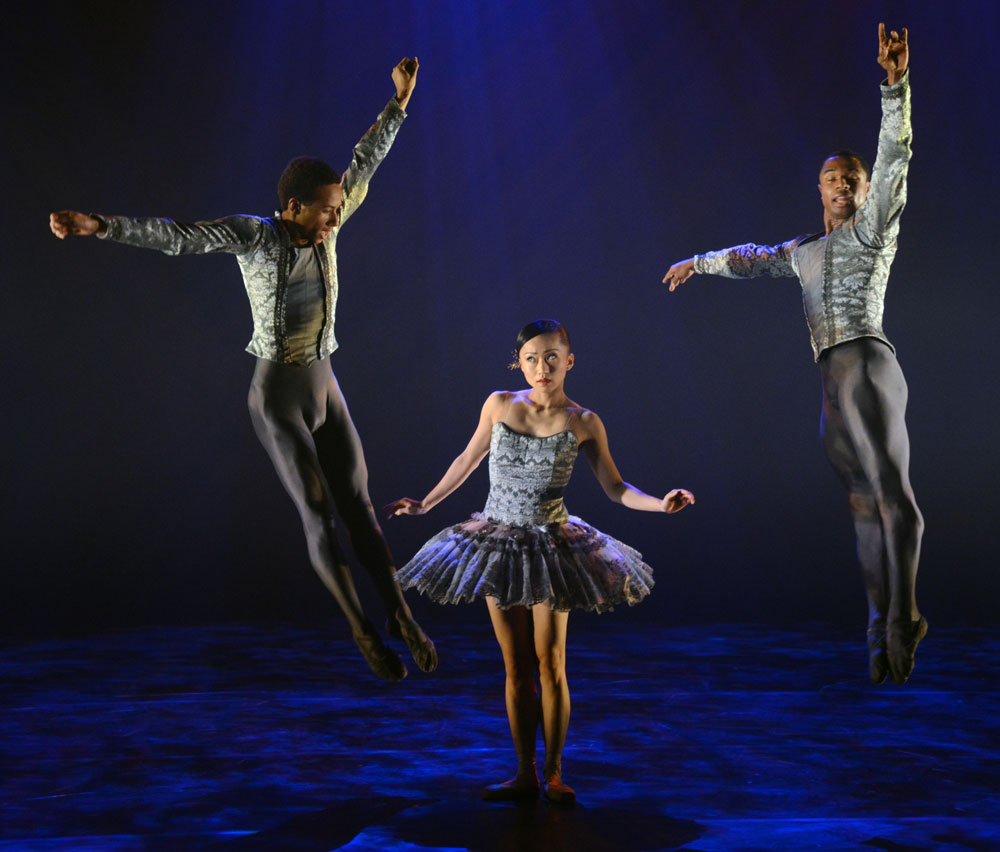
© Dave Morgan. (Click image for larger version)
Is it cheating to introduce lyrics into a wordless dance form? Not a problem in Pita’s mash-up of genres, since he doesn’t rely on words to convey what the characters feel. Their bemusement at their sudden passions is evident, with the lyrics simply adding the songwriters’ bitter-sweet commentary. The happiest couple turns out to be the former rivals, Helena (Sayaka Ichikawa) and and Hermia (Kanika Carr), who compete on pointe in bouncy, speedy steps before wandering through the mayhem, hand in hand. Lovely Robinson’s duet as besotted Titania with Alves’s loping Bottom, who can scarcely believe his luck, is tenderly sensual; Johnson’s Oberon wrestles manfully with Wye’s seductive charms.
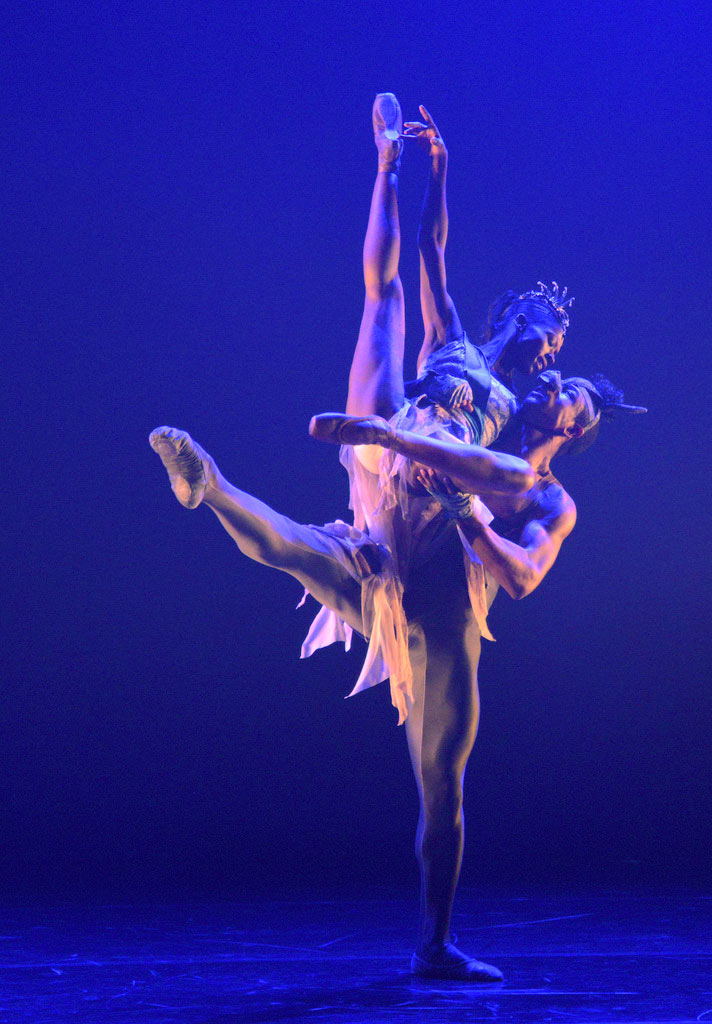
© Dave Morgan. (Click image for larger version)
Partner-swapping is further confounded by a profusion of veils, common enough in ballets, and the intrusion of Salvador Dali (Christopher Renfurm in a suit and moustache). Why not? It’s Pita’s dream, after all – an antidote to his Kafka nightmare in The Metamorphosis. Coracy’s Puck restores order at the end, dance and music reverting to Handel’s Sarabande, leaving us to ponder the many fantasies ballet entails, not least the gallant behaviour of men in tights, women in tutus and tiaras.
The other two works in the programme, making up the first half of the programme, are less intriguing.

© Bill Cooper. (Click image for larger version)
Martin Lawrance’s Limbo grabs attention with hellish red lighting and over-amplified music, Hindemith’s first viola sonata. Cira Robinson is the doomed protagonist in limbo, the Catholic after-life waiting room. She curves and slashes in defiance, until two men, Alves and Wye, come to what they hope will be her rescue. Lawrance’s programme note implies that the piece is about striving for life in the face of insuperable odds. Hindemith’s sonata is certainly anguished, as is the choreography, but not surprisingly, the danced lament has no resolution.
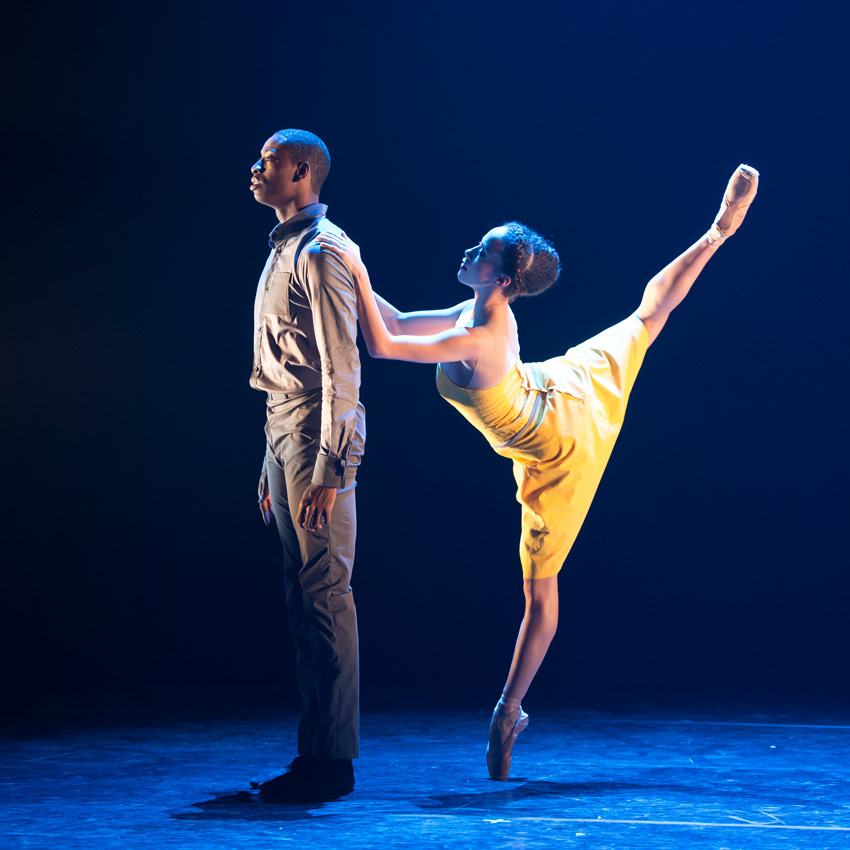
© Bill Cooper. (Click image for larger version)
Marney’s Two of a Kind is, as the title implies, a double duet, amplified from a 2009 pas de deux. He has doubled up familiar yearning music: Tchaikovsky’s Souvenir de Florence and Ravel’s Pavane pour une infante défunte. Apparently, the theme is one woman’s internal journey through the course of a changing relationship: cue conflicts with alternating partners. Sayaka Ichikawa is left alone at the conclusion, facing the dilemma of whether to ‘settle or change’. Fine dancing by Ichikawa, Carr, Johnson and Refurm, but followed by Pita’s witty, acerbic Dream, Two of a Kind seemed to wallow in sentiment and swooping lifts.


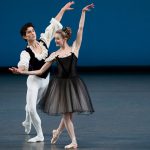



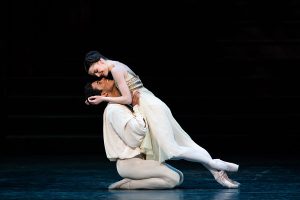
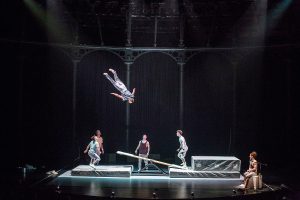
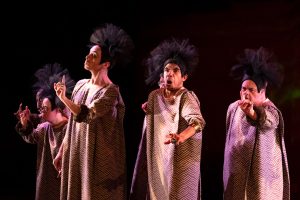
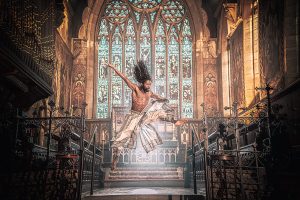

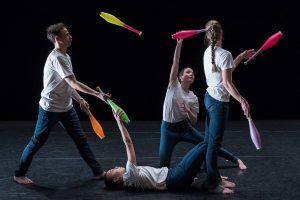
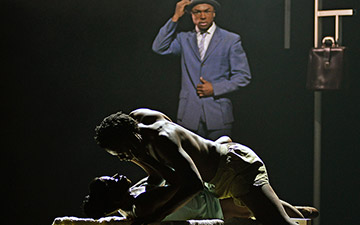
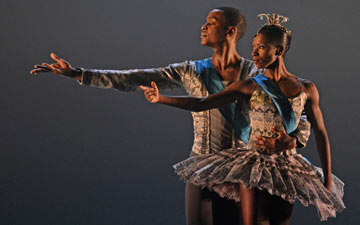

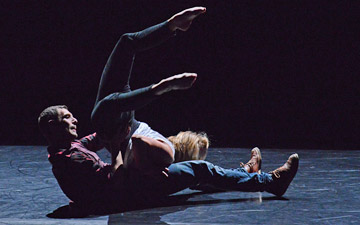
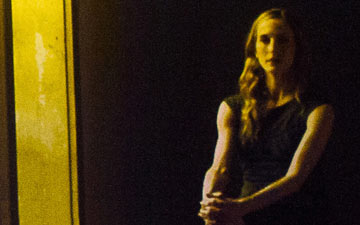
You must be logged in to post a comment.